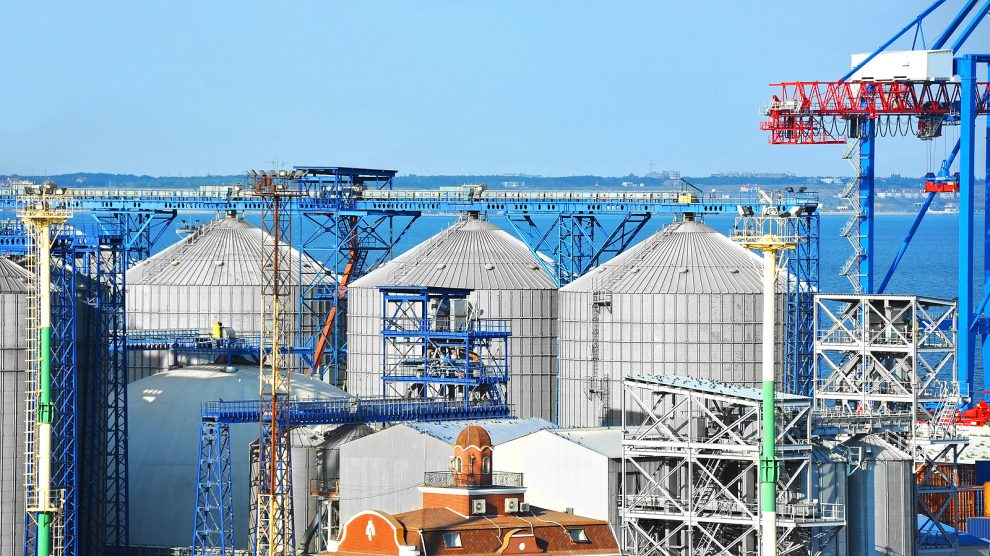The recapture of Snake Island at the end of last month has opened up new routes for some Ukrainian grain, while a deal that could allow the “safe and secure export” of millions of tonnes of grain via the Black Sea looks close.
United Nations Secretary-General António Guterres has said that a “critical step forward” had been taken on July 13 to allow the “safe and secure export” of millions of tonnes of grain via the Black Sea, but emphasised that no formal agreement has yet been signed between Russia and Ukraine.
The Turkish government has been working with the UN to broker a deal for weeks, after the Russian invasion of Ukraine on February 24 led to a blockade of Ukraine’s seaports, resulting in a major rise in the price of grains, cooking oils, fuel and fertiliser, together with major supply chain issues across the world.
Much of the grain imported by developing countries comes from Ukraine, but since the invasion, the country’s Black Sea ports have been blockaded by Russia, including the crucial hub of Odesa.
“In a world darkened by global crises, today, at last, we have a ray of hope”, said Guterres, briefing reporters at UN Headquarters in New York.
“A ray of hope to ease human suffering and alleviate hunger around the world. A ray of hope to support developing countries and the most vulnerable people. A ray of hope to bring a measure of much-needed stability to the global food system.”
“Since the war started, I have been underlining the importance of having Ukraine’s food products and Russian food and fertiliser fully available in world markets,” added the UN chief.
“In the end, the aim of all parties is not just an agreement between the Russian Federation and Ukraine, but an agreement for the world.”
He thanked Turkey for its “outstanding efforts” convening the talks and saluted all participants for their work “to secure an agreement for our common humanity”.
“Today is an important and substantive step. A step on the way to a comprehensive agreement. We must also do more for struggling people and developing countries getting pummeled by a food, energy and financial crises not of their making.”
He added that the war in Ukraine rages on, but the “hopeful news” from the Istanbul talks, “shows the importance of dialogue”.
‘Two steps’ from an agreement
Responding to questions from reporters, the Secretary-General said that he hoped the first meeting in Istanbul would lead to another, “very soon”, potentially next week.
Asked about the wider possibility of a peace deal being reached between Russia and Ukraine to end the fighting, Guterres said there was still a “long way to go”, although Wednesday’s developments were an extremely encouraging sign.
Ukraine’s foreign minister, Dmytro Kuleba, said Kyiv was “two steps from an agreement with Russia”.
“We are in the final stages and everything now depends on Russia,” he told Spain’s El País newspaper. Russia said its requirements included the right to “search the ships to avoid the contraband of weapons” – a demand rejected by Kyiv.
Guterres and the UN has issued repeated warnings about the consequences for the world of Russia’s invasion, saying earlier this month that it “threatens to unleash an unprecedented wave of hunger and destitution, leaving social and economic chaos in its wake”.
The European Union meanwhile has accused Moscow of “weaponising” food supplies to gain an advantage in the war.
The importance of Snake Island
Ukraine exported around six million tonnes of grain a month before Russia launched its invasion, but volumes have fallen to about one million tonnes with Kyiv been forced to transport most of its grain by train via its western border or through small Danube river ports.
However, Ukraine’s recapture of the strategically important Snake Island at the end of last month has enabled the restoration of transshipment activity in the region and could bring relief to the Sulina Canal.
With Snake Island back under Ukrainian control, transshipment through the Bystroe Canal has been restored, creating another link between the Danube and the Black Sea and relieving the Sulina Canal, which had become jammed by the sheer number of vessels attempting to pass through it.
Ukraine hopes that an additional 500,000 tonnes of grain each month will be shipped through Bystroe.
Last week, Romania reopened a Soviet-era rail link connecting its Danube River port of Galați to Ukraine a month earlier than expected to help boost vital grain exports from its neighbour.
It means grains coming from Ukraine via Moldova can reach Galați directly to be transfered onto barges and then further, including to the Black Sea port of Constanța. Supplies could also be stored in a silo in Galați that has a capacity of 25,000 tons, according to Romania’s transport minister, Sorin Grindeanu.
Unlike many news and information platforms, Emerging Europe is free to read, and always will be. There is no paywall here. We are independent, not affiliated with nor representing any political party or business organisation. We want the very best for emerging Europe, nothing more, nothing less. Your support will help us continue to spread the word about this amazing region.
You can contribute here. Thank you.



